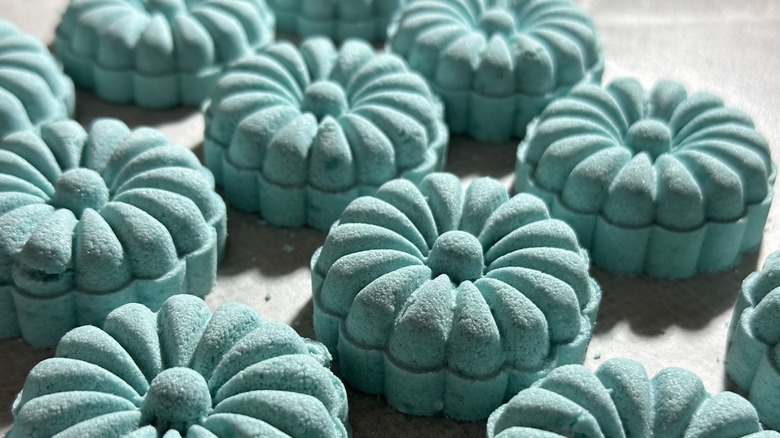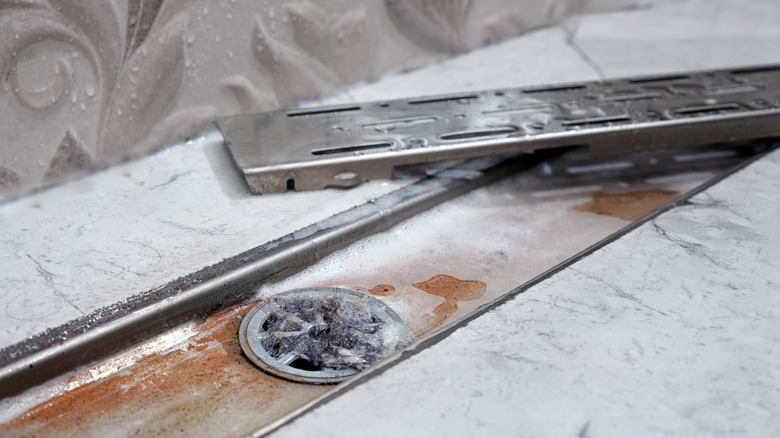Can Shower Steamers Clog Your Drain?
For many people, the shower is not only a time for cleaning but also a time for sheer relaxation. And creating a spa-like experience with the help of accessories like shower steamers, bath salts, and candles can transform your bathing session into something worthy of a Calgon ad. Even though you can create your own DIY baking soda shower steamer, it's simply easier to purchase them online or from the store. But are shower steamers safe for your shower drain? The answer is that it really depends on the ingredients in the shower steamer. No one enjoys having to call for emergency plumber services or make a last-minute effort to unclog the drain with a random household item. So it's best to know beforehand whether these scent-filled balls pose a threat to your bathroom's plumbing.
Bathroom toiletries such as shower steamers and bath bombs have become more popular than ever thanks to TikTok trends and other social media platforms. Unfortunately, way too many people forget to consider the downside of using these bathtub treats, which is the negative effect they may have on shower drains. Sometimes, you simply won't suspect something is bad for your drain until it's too late, and your shower gradually starts to drain more slowly as each week passes.
Checking the label on any bath products that'll end up down your drain is absolutely crucial to preventing smelly clogs and other plumbing issues. And there are certain chemicals that should never go down your drain, as they may cause immediate blockages or a slow buildup.
Common shower steamer ingredients that are bad for drains
To determine if your shower steamer is likely to become a sneaky culprit that causes future clogs, it helps to understand some common ingredients used in these bath finds. Clay is one ingredient, as it helps hold the steamers together. Unfortunately, clay and the oils typically coupled with it can eventually cause clogs. Another is sodium sulfate, which is often used in shower steamers and other grooming products. Though it's soluble in water, plumbers typically advise against having it go down your drains. However, it's pretty hard to avoid, given it's commonplace in many hygiene products, such as shampoos and soaps, which are formulated to go down the drain. Lastly, cornstarch can also be a main ingredient used in many shower steamers. The issue with corn starch is that it hardens in typical curved-shaped plumbing pipes over time, making it easier for grime and debris to get caught on and build up around it.
So what is safe? Sodium bicarbonate (aka baking soda) is a common staple used in shower steamers, and it's generally safe when used in drains, though in moderation. Also, products containing witch hazel are generally given a thumbs-up by plumbers for drain usage when diluted or in small amounts. Citric acid is another familiar and safe ingredient included in many shower steamers, and it's even used to clean drains.
In short, it's always best to check the label and usage instructions before using shower steamers. And just to be on the safe side, using them in moderation can help stave off plumbing complications.

